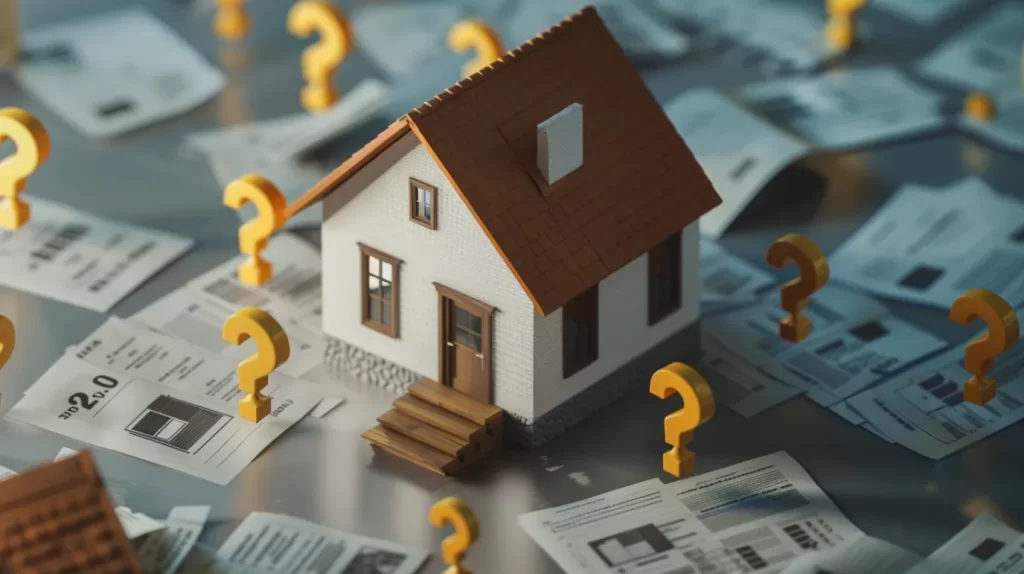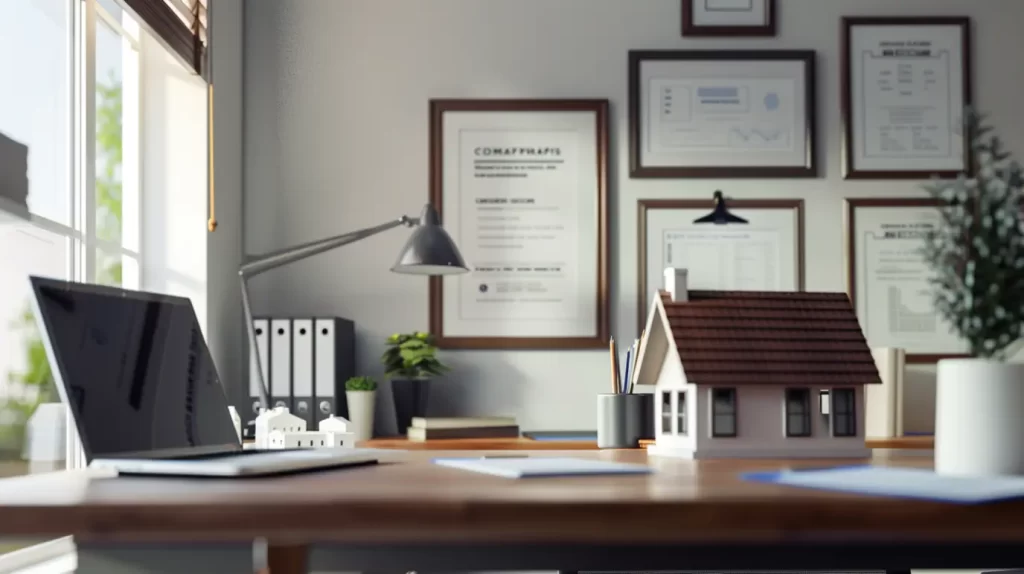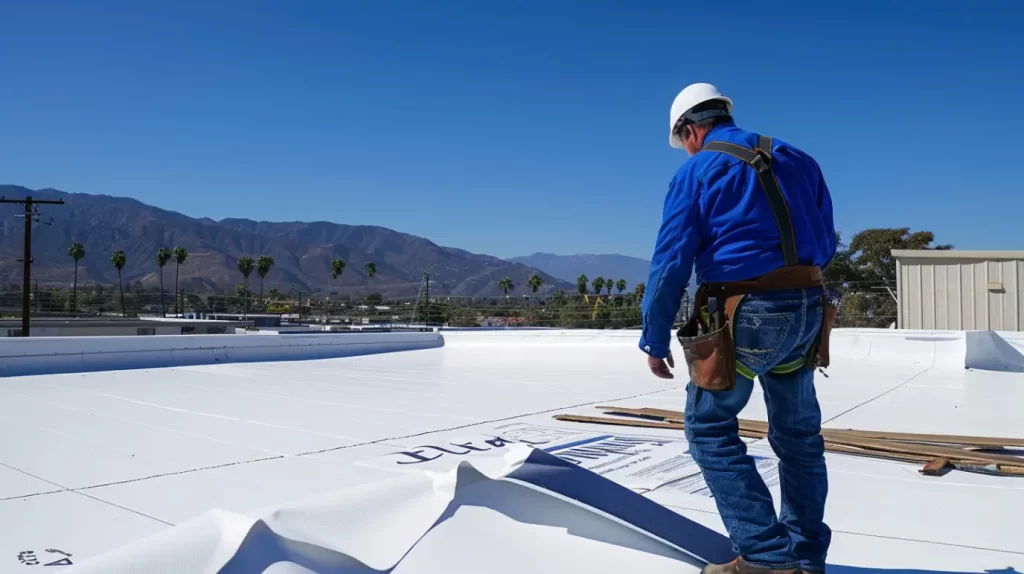Navigating roofing projects is essential for property managers, especially amid rising roofing scams. At Fontaine Roofing in Orange County, CA, we understand that recognizing con artists’ tactics protects both financial investments and property safety. The risks of scams can result in significant losses, particularly when insurance claims are exploited. Recognizing red flags and implementing a thorough vetting process ensures peace of mind for everyone involved.
Why Property Managers Are a Target for Roofing Scams
Property managers often become vulnerable after severe weather events, attracting scammers who exploit their urgent need for repairs. High-pressure tactics and aggressive pitches prey on their anxiety. Additionally, the complexities of insurance claims and red flags like unexpected costs can lead property managers to fall victim to common roofing scams.
Contact Us
Unique Risks Faced by Commercial Properties and HOAs
Commercial properties and homeowners’ associations (HOAs) face unique vulnerabilities due to their size and operations. Scammers target these entities, believing their larger budgets can absorb losses. Managing multiple units can lead to oversight, increasing the risk of falling for unscrupulous roofers. Moreover, the high volume of roofing projects raises the likelihood of encountering contractors who use high-pressure tactics, making vigilance crucial for property managers.
Tactics Scammers Use to Approach Property Managers
Scammers often use high-pressure tactics and persuasive pitches to target property managers, exploiting their need for quick solutions. They may pose as roofing contractors with questionable credentials and promises of immediate service, leveraging severe weather events to create a sense of urgency. By offering “free inspections,” they foster trust while using misleading information to exaggerate roof damage, complicating decision-making and increasing vulnerability.

Most Common Roofing Scams
Commonly encountered roofing scams in Orange County exploit property managers’ vulnerabilities. Storm chaser contractors often emerge after severe weather, soliciting work with aggressive sales pitches and inflated insurance claims. Another prevalent tactic involves “too-good-to-be-true” bids that lure clients, only to reveal hidden costs and unnecessary upcharges once the project begins. Unscrupulous roofers may also offer “free” inspections that identify fabricated damage, prompting unwarranted repairs. Understanding these practices is crucial for safeguarding investments and ensuring peace of mind.
Storm Chaser Roofing Scams Post-Storm
After severe weather events and bad weather events, storm chaser contractors frequently emerge after a big storm, leveraging the aftermath to target vulnerable property managers. These con artists often capitalize on high anxiety levels associated with roof damage, employing aggressive sales pitches and pressure tactics to secure contracts. They may promise quick repairs or significant discounts that seem enticing on the surface, but often lead to subpar roofing work. Vigilance is key to distinguishing between reputable roofing companies and those solely seeking profit in the wake of a storm.
Too-Low Bids and Costly Surprises
Low bids in roofing projects can hide potential pitfalls. Scammers often offer attractive prices, only to introduce unexpected upcharges once work starts, leaving property managers with inflated material costs and heightened costs of roofing materials. This tactic exploits the urgency for roof replacements during adverse weather. To avoid falling victim, conduct due diligence: always request written contracts detailing the scope of work, materials, and total expenses before hiring a contractor.
The Catch Behind Free Roof Inspections
“Free roofing inspection” offers can be a scam targeting property managers. Scammers often make unsolicited offers, conducting superficial checks that claim to reveal major damage. They may exaggerate findings or fabricate issues, leading to inflated insurance claims. Stay vigilant: always get a second opinion from a reputable roofing company and avoid high-pressure sales tactics that can jeopardize your peace of mind and finances.

How Roofing Scams Work Door to Door
Door-to-door roofing scams typically employ aggressive sales tactics to instill fear, often exaggerating roof damage caused by recent storms. Scammers present themselves as trustworthy roofing contractors, using high-pressure pitches to secure immediate agreements and make a quick buck. It’s important to directly vet a local roofer since unsolicited visits frequently come with red flags, such as overly eager contractors who demand large down payments or claim to have leftover materials from other projects. Awareness of these tactics allows property managers to maintain control, ensuring that only reputable companies are considered for roof repair and other roofing work.
High-Pressure Sales and Fake Damage Claims
Scammers use high-pressure sales tactics to exploit property managers’ anxieties, especially in the aftermath of a storm, and take advantage of your anxiety. They may present exaggerated damage claims, pushing for urgent repairs and leveraging fear to secure immediate agreements. By manipulating the situation, they aim for lucrative contracts with hefty upfront payments. Recognizing these tactics is vital; a thorough inspection by a reputable roofing company can provide clarity and protect against unnecessary costs and fraud.
Warning Signs of Unsolicited Contractor Visits
Unsolicited contractor visits have warning signs that property managers should recognize. A lack of identification or online presence and official documentation may indicate a disreputable roofing company. High-pressure tactics, such as urging immediate contracts or large down payments, are major red flags. Additionally, contractors offering “free inspections” without clear, written contracts outlining the work should be viewed with skepticism. Staying informed and vigilant can help prevent falling victim to these scams.

How Do You Know If a Roofing Contractor Is Legit?
Verifying a roofing contractor’s legitimacy is crucial for protecting your property and budget. Start by checking licenses and credentials against state requirements and industry standards. A reputable company will offer written contracts detailing the scope of work and payment terms. Consult trusted sources or local agencies for customer reviews and complaints. Additionally, a thorough online search can reveal red flags, ensuring your peace of mind.
Verifying Licenses and Certifications
Verifying licenses, credentials, and industry certifications serves as a fundamental step in identifying reputable roofing contractors. Cross-referencing the contractor’s license with state and local regulations can unveil their legitimacy. Look for memberships in respected associations, as this often indicates adherence to industry standards. Checking for certifications from well-known roofing material manufacturers enhances credibility, assuring property managers of quality workmanship. Engaging with the Better Business Bureau further substantiates a roofer’s reputation, offering peace of mind against roofing scams.
Check Trusted Sources and Local Authorities
Due diligence is essential when verifying a roofing contractor’s legitimacy. Consulting trusted resources such as the Better Business Bureau can provide insights into a roofing company’s reputation and previous complaints. Local agencies, including licensing boards and consumer protection offices, can verify credentials and compliance with regulations. Utilizing these resources not only enhances your understanding of the contractor’s standing but also shields you from potential scams, ensuring your roofing project moves forward with confidence and security.

What To Do If You Suspect a Roofing Scam
Suspecting a roofing scam—especially one possibly observed from a moving vehicle—requires swift action to protect your interests. Start by documenting all communication with the contractor, including written contracts and estimates. Report your concerns to local authorities and your insurance company to help prevent further fraudulent activity. Consult a trusted roofing professional for an independent evaluation of the alleged damage. This due diligence not only aids in resolving the issue but also provides peace of mind moving forward.
Reporting to Authorities and Insurance Providers
Promptly reporting suspected roofing scams to both authorities and insurance providers is crucial for safeguarding your property and finances. Engage with your insurance company immediately to document any claims, ensuring that they are aware of potential fraud. Filing a report with local law enforcement can aid in investigating the scam and protecting other property managers from falling victim. Additionally, notifying the Better Business Bureau about the roofing contractor will help maintain industry standards and promote transparency among reputable companies.
Steps to Minimize Losses and Resolve the Situation
Taking immediate action is essential to mitigate losses from roofing scams, including insurance fraud and scam artists. Document all communications and transactions with the contractor to maintain a clear record of the agreed scope of work, including any separate invoices. Promptly report any fraud suspicions to your insurance company for guidance on your claim. Additionally, consult a reputable roofing company for a second opinion on the work done, which can provide peace of mind and help assess damages.
Get in Touch
To protect properties from roofing fraud, property managers must remain vigilant. Understanding common scams, like those by storm chasers or “free” inspection offers, is crucial. Conducting due diligence and consulting reputable companies like Fontaine Roofing in Orange County, CA, is essential. Proactive steps not only safeguard assets but also build confidence amid roofing challenges. By prioritizing preventive measures, property managers can ensure peace of mind for themselves and their communities. For expert assistance, contact us to navigate these challenges effectively.
Read our blog: How to Minimize Business Disruption During Roof Replacement
Frequently Asked Questions
How do you not get ripped off by a roofer?
To avoid getting ripped off by a roofer, always research various companies and contractors thoroughly, verify their licenses and insurance, check the status of their roofer, and seek multiple quotes. Be wary of upfront payments or high-pressure sales tactics, and consider consulting local agencies for trusted referrals, and use a credit card for payments instead of cash.
How can you tell if a roofing contractor is legitimate?
To determine the best way to check if your roofing contractor is legitimate, verify their licenses and insurance, check online reviews for customer feedback, ask for references, and confirm their industry certifications. This diligence will help ensure you’re hiring a reputable professional for your roofing needs.

